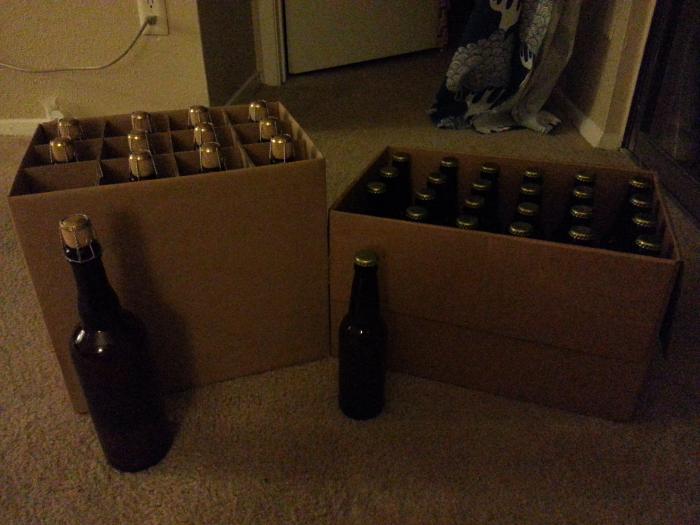electrolight
Well-Known Member
- Joined
- Sep 19, 2013
- Messages
- 267
- Reaction score
- 66
So I bottled my Apfelwein which was going to bottle carb. It fermented for almost exactly 2 months before I bottled. I didn't repitch yeast.
Our first cold front came throught and it is so cold out, so the heater is on inside. The heater keeps this place around 80 so I figured the 65 degrees outside would make the brew happier and I placed it outside. Well, I forgot about it and last night it got super cold, it got down to 36 before I remembered to bring it in.
I'm wondering if the yeast may have died or not?... thus not carbing the bottles. I know I can check... But lets say the yeast didn't die and it may still carb but just take longer... anyone have an estimate of how much longer if it isn't dead?
Thanks for all the help guys/gals!
Our first cold front came throught and it is so cold out, so the heater is on inside. The heater keeps this place around 80 so I figured the 65 degrees outside would make the brew happier and I placed it outside. Well, I forgot about it and last night it got super cold, it got down to 36 before I remembered to bring it in.
I'm wondering if the yeast may have died or not?... thus not carbing the bottles. I know I can check... But lets say the yeast didn't die and it may still carb but just take longer... anyone have an estimate of how much longer if it isn't dead?
Thanks for all the help guys/gals!



